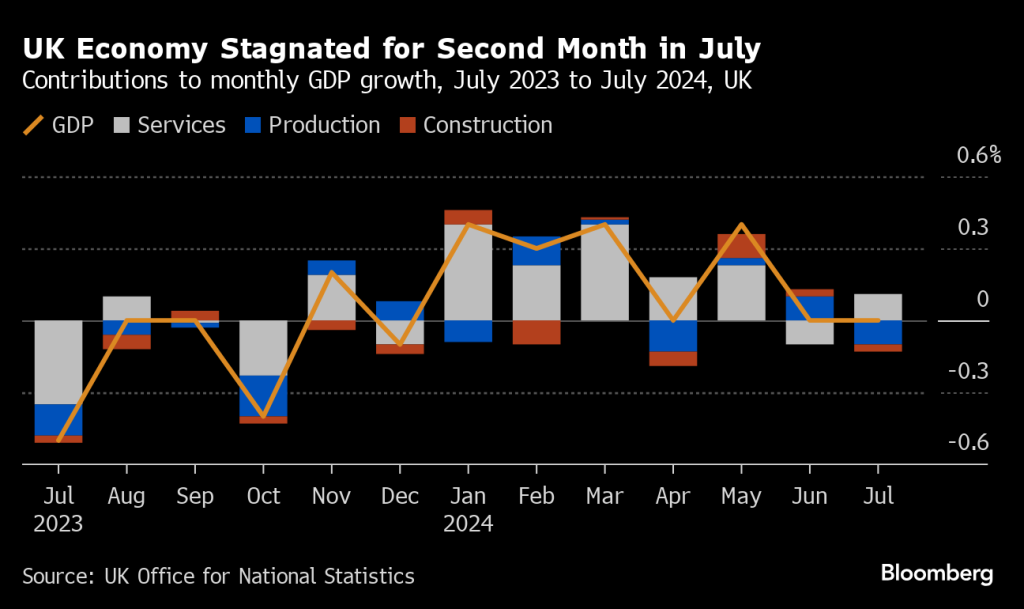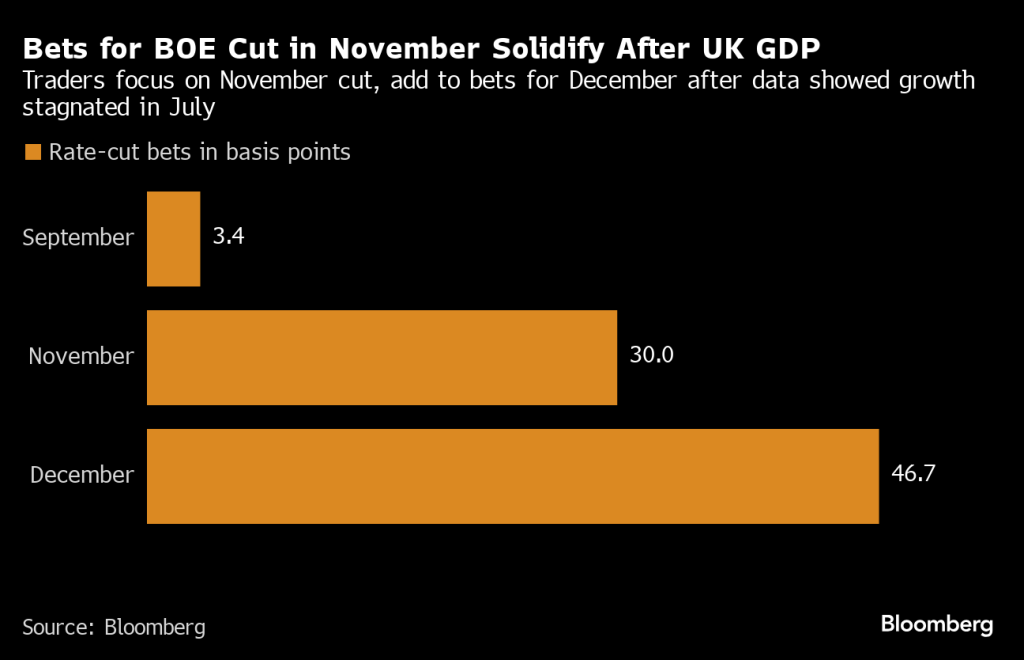UK Economy Faces Stagnation and Challenges Ahead
Explore how the UK economy's stagnation presents challenges and opportunities for sustainable growth under the new Labour government.

Key Points
- The UK economy experienced stagnation in July, with no growth recorded for two consecutive months, posing challenges for the new Labour government.
- Chancellor Rachel Reeves
emphasized that overcoming 14 years of stagnation will require strategic investment and long-term policies focused on growth.
- Despite the challenges, upcoming investments from major companies like Amazon Web Services
signal potential for revitalization and sustainable economic growth.
The UK economy is facing considerable challenges as it experiences stagnation for two consecutive months. Recent data from the
(ONS) indicates that the Gross Domestic Product (GDP) was flat in July, following a similar trend in June. This stagnant economic performance raises urgent questions about growth strategies for the new Labour government under Prime Minister
.
Stalled Growth: What the Numbers Say
The July economic output displayed no month-on-month growth, falling short of economists’ expectations, which had predicted a modest 0.2% increase. Despite showing 1.2% growth year-on-year compared to July 2023, this figure is still less than the anticipated 1.4%.
These figures reflect a broader slowdown following a stronger first half of the year, where initial recovery from previous recessions showcased growth rates of 0.6% between April and June. Insufficient growth in key sectors including manufacturing and construction has hindered potential progress, leaving only the service sector to provide a slight uplift of 0.1% in July.

Long-Term Challenges and Government Response
Chancellor Rachel Reeves has acknowledged the formidable task at hand, admitting that overcoming 14 years of stagnation cannot be accomplished overnight. The Labour government is determined to turn this economic situation around, with a focus on sustainable growth through strategic investment and innovation.
In light of these challenges, upcoming government policies and the distribution of resources in the upcoming budget will be critical. Analysts project that the
may need to adjust interest rates to stimulate economic activity more effectively, particularly as inflation rates decline.
The Path Forward: Optimistic Signals Amid Challenges
Despite the grim numbers, there are rays of hope. For instance, the announcement of Amazon Web Services planning to invest £8 billion in the UK over the next five years signifies potential growth and job creation in the tech sector. Such investments suggest that the foundational aspects of the UK economy remain robust and ready for revitalization.
Additionally, the strong household financial position indicates a society capable of increasing spending as inflation subsides. Sanjay Raja, Chief UK Economist at
, suggests that the combination of improving household balance sheets and potential fiscal expansion may gradually boost GDP growth in the years to come.

Final Thoughts: A Collective Effort Required
The UK's path to sustained economic growth will not be straightforward; it will require courageous leadership, innovative policies, and public engagement. By focusing on long-term strategies that foster sustainable growth and deal proactively with stagnation, the Labour government can lay the groundwork for a resilient future.
Indeed, the journey of transformation is rarely quick, but by seizing opportunities for investment and prioritizing economic stabilization, Britain can pave the way for a more prosperous tomorrow.


